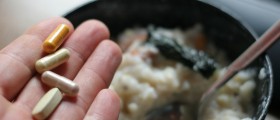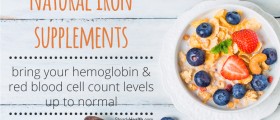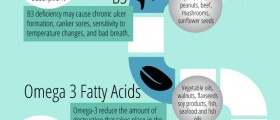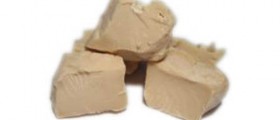
Zinc is one of the most important minerals for the human health and normal development. It is an essential mineral which stimulates many enzymes. Enzymes are substances which promote biochemical reactions in the body and participate in body functions.
Zinc is very important for the immune system, it is essential for proper healing of wounds, for normal development and growth of children and unborn babies.
Zinc lozenges and nasal sprays can shorten the duration of a cold and help with some of its symptoms, particularly with sore throat. All forms of zinc work well but for the colds the zinc gluconate may be the best. Since taking zinc on an empty stomach can cause digestive problems, it is advised to take it with or immediately after meals.
Zinc deficiency
A deficiency of this mineral occurs due to inadequate nutrition, poor absorption or when the body’s need for zinc increases. It leads to slow or incomplete growth, hair loss, diarrhea, impotence or delayed sexual development, skin lesions, eye problems and loss of appetite.
Zinc deficiency can also lead to abnormalities in taste and smell and to mental lethargy. Wounds heal much slower if the body does not have enough zinc.
All the problems that occur due to zinc deficiency can be signs of other conditions so it is advised to consult a doctor to make sure what is going on.
Zinc deficiency risk factors include low calorie intake, alcoholism and digestive diseases. Vegetarians and vegans need more zinc than people who eat meat and dairy products because the absorption of zinc from plants is much lower.
Breastfeeding women may need extra zinc as well since the zinc levels may decrease during lactation.
People who have gastrointestinal diseases like sprue, Crohn’s disease and short bowel syndrome may not absorb enough zinc so it is recommended for them to take zinc supplements.
Zinc deficiency can compromise the immune system, making the body more vulnerable and unable to fight off infections. This happens because zinc is required for the production of T-lymphocytes, blood cells that we use to fight the infection.
Some studies have shown that iron fortification of foods may lead to a decreased absorption of zinc. However, the extent in which this happens is minimal and taking iron between meals is believed to reduce the effects of iron on zinc absorption.
Zinc toxicity
Zinc can have negative effects on the body if its intake is higher than recommended. Too much zinc means taking 150 to 450 mg per day and it has been associated with copper deficiency, changes in iron performance and function, weakened immune system and decrease of HDL, which is the good cholesterol. The daily intake of zinc must be below those levels in order to prevent complications and negative side effects.

















Your thoughts on this
Loading...